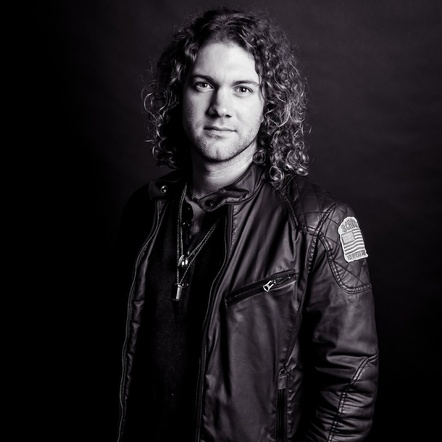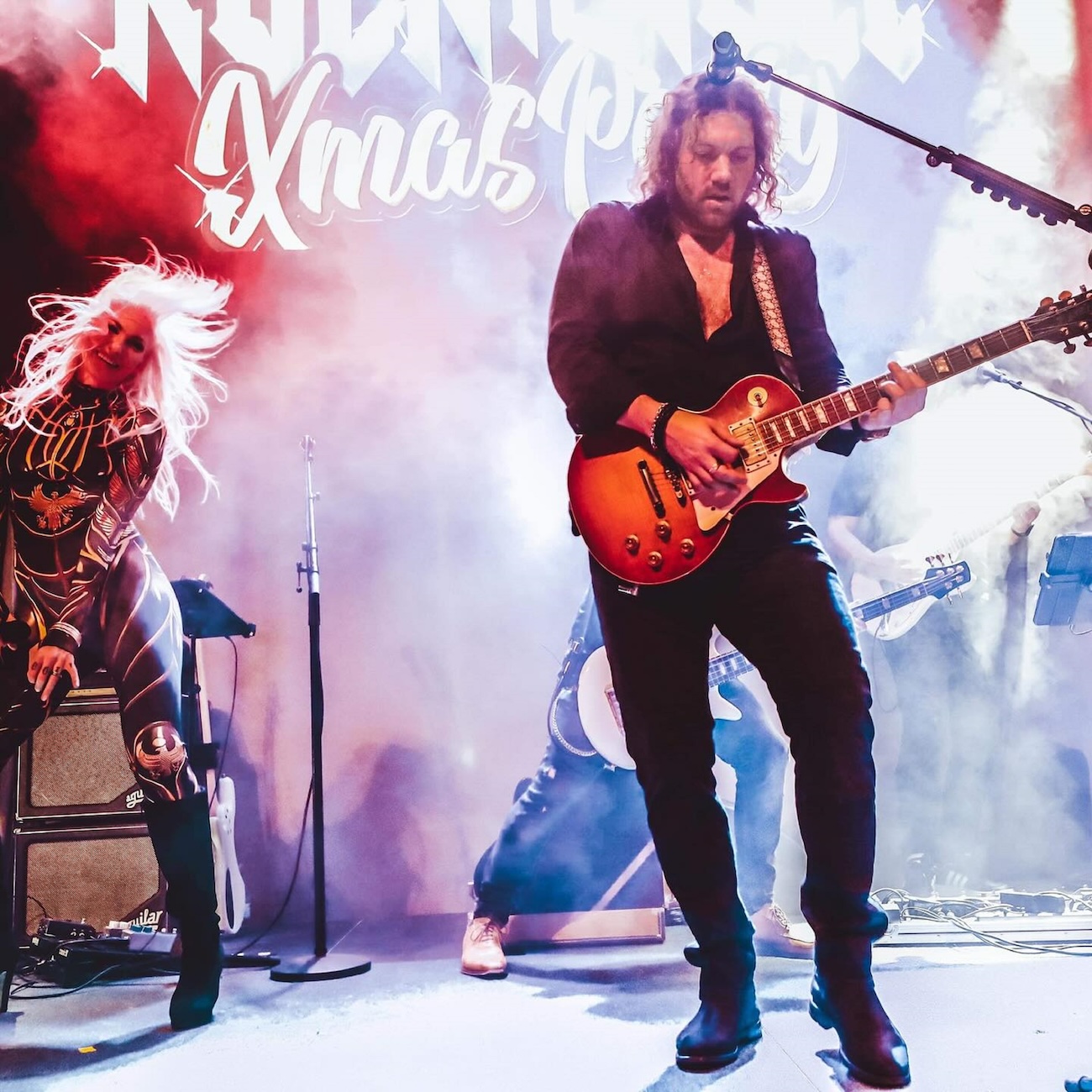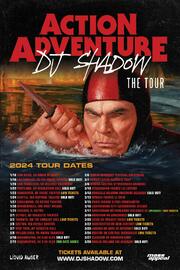Learn how to play the game and grow a thick skin. A dinosaur skin.
Simon Andersson: How long of an answer do you like? Ha ha! Early on I watched a VHS tape my father had with videos of John Fogerty, Little Richard, Fats Domino and The Eagles etc. That made a big impact on me as a kid and I watched that tape over and over. Later on when I was around eleven, I was heavily influenced by Chicago. The early era many seem to have forgotten about. I'm talking about the 70's long before I was born. So much great music they did back then! And their guitarist - Terry Kath - who was an amazing player really impressed me. Then during high school it was a lot of ToTo on the menu and I should also say that growing up I listened to Swedish Pop/Rock group Roxette. Most people internationally would probably know their music from Pretty Woman. It Must Have Been Love. And there are many more that influenced me over the years.
Nowadays I listen to as much different music as I can. I love taking influences from all over the place. My schedule don't allow me to listen as much as I used to but I try to get new inspiration as often as I can.
What was the experience of performing live on American TV like, and how did it impact your career?
Simon Andersson: It was perhaps to hottest gig I've ever done! Not kidding! Ha ha
Must have been to hottest day ever recorded in Nashville. I thought it was a good idea to wear black jeans and a boots. It was not.
But it was an amazing experience. Everyone was really nice and it worked out great I think.
it's one of those moments that you add to your experience bank. It makes you more comfortable.
Obviously it was not my first TV performance but the US is a big deal and that was my first live performance on US TV.
Hopefully not the last.
You've had success both as a solo artist and in collaborations. What do you enjoy about each experience?
Simon Andersson: With collaborations you can go anywhere. No matter your own style. Whatever you want to do as an artist you can.
As a solo artist your own journey is connected with your fans. it's an interesting thing. Almost like a relationship.
As I said before, when being a solo artist you have to think more about your style or what you are as an artist. What's the connection with your fans.
If Rammstein suddenly do a jazz album - it's a little weird. If they collaborate with a symphony orchestra or famous opera singer - it's not.
Can you describe the inspiration and creative process behind your song "Try"?
Simon Andersson: It was first written as an idea to a famous DJ. I received a request for something and came up with the basic melody and the hook.
But it was not finished and didn't have any lyrics. At least not the way it turned out when it was finished.
The song or the project ended up in my drawer for some time and it was first last spring when we were planning a new release for the summer as I was playing my own festival that I've founded - South Ocean Festival in Malmö, Sweden - that I picked it up and felt "let's finish this one". It had the right vibe for what we were looking for.
A lot of tracks were already recorded - not the vocals - so it just needed a little love and production to finish it up.
The lyrics are mostly inspired by my own journey and how it turned out so far. I mean it wasn't planned. Life man. We all keep going don't we. And you should never give up on your dreams.
What message do you hope listeners take away from your music?
Simon Andersson: I hope they feel something. Depending on the song obviously. I want to experience something with my fans, especially live. But it's a journey we do together.
With age I get better and better connecting with my inner self and hopefully that's something I can share with my fans. And we go forward and grow together.
Can you share any upcoming projects or goals you're currently working on?
Simon Andersson: Yeah. I mentioned South Ocean Festival. We're doing our second year now with that. Really exciting and an amazing project.
So far we have The Cardigans (SE), The Midnight (US) and DeWolff (NL) confirmed. More amazing acts to be announced soon. Festival is held 12-13 July this year.
I'm working on lots of new music. it's all about singles these days but there's an album coming next year and we're working towards that, building momentum and getting ready to tour.
it's exciting and I feel really inspired to go forward into the future.
How has the music industry evolved since you began your career, and how have you adapted to these changes?
Simon Andersson: The biggest change is streaming. The old model is dead and now there's no money in music. Selling music I mean - not live. That's something else.
Social media doesn't exactly benefit quality work either. it's 2-3 seconds on TikTok. That's the attention span.
I mean it's not really possibly to present anything of quality in that period of time. Music or ANYTHING really is not meant to be consumed that way.
Here's an example. You get 2 seconds to look at the Mona Lisa. Did you appreciate it? Didn't think so.
We live in strange times. All about quantity and not quality. Difficult to break the pattern but I'm sure it will change or break down eventually.
A good model would be to combine the user-friendly interface of Spotify with buying or renting music. Something like that.
iTunes was not bad at all. It was very convenient and it supported a sustainable business model.
I'm not about "We need to go back in time and I liked it better the way it was" but there needs to be a sustainable model to support people's work and where creativity and freedom can thrive.
Today's business model is corrupt beyond belief. If you stream my music as an independent artist, parts of the royalties go to the major labels.
it's like you're buying something at Walmart and they have to pay IKEA a portion of their revenue. Do you think they would agree?
Finally, what advice would you give to aspiring musicians trying to make their mark in the industry?
Simon Andersson: Start with passion for music and forget about the industry and all I just said about it. Learn how to play! Have fun. Play with a few friends and get going together. Interact and inspire each other.
Test things. The reward is unbelievably satisfactory. Don't just rely on loops, samples and stuff. You can use that anyway whenever you want. I do too.
The most important thing is to learn how to connect with people and music is such a gift.
Learn that and you have every chance possible to become successful. And success is not measured in just money and fame. Remember that and you stay happy as well.
Simon Andersson's narrative is a testament to the power of persistence, passion, and adaptability in the ever-evolving world of music. His experiences, ranging from his musical beginnings in Sweden to his international acclaim, highlight the importance of authentic artistry and staying true to one's roots. As he looks forward to exciting new projects and continues to shape his unique sound, Andersson remains a beacon of inspiration, demonstrating that true talent coupled with relentless dedication can indeed leave a lasting impact in the global music landscape.
Learn more about Simon

























